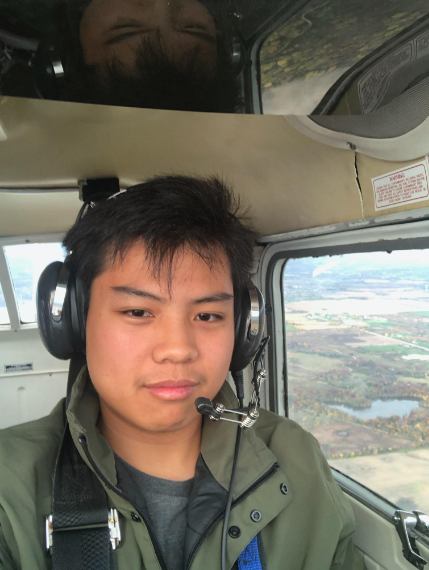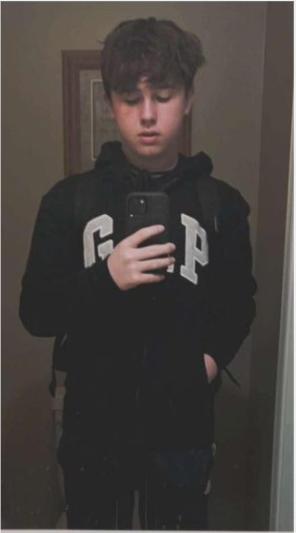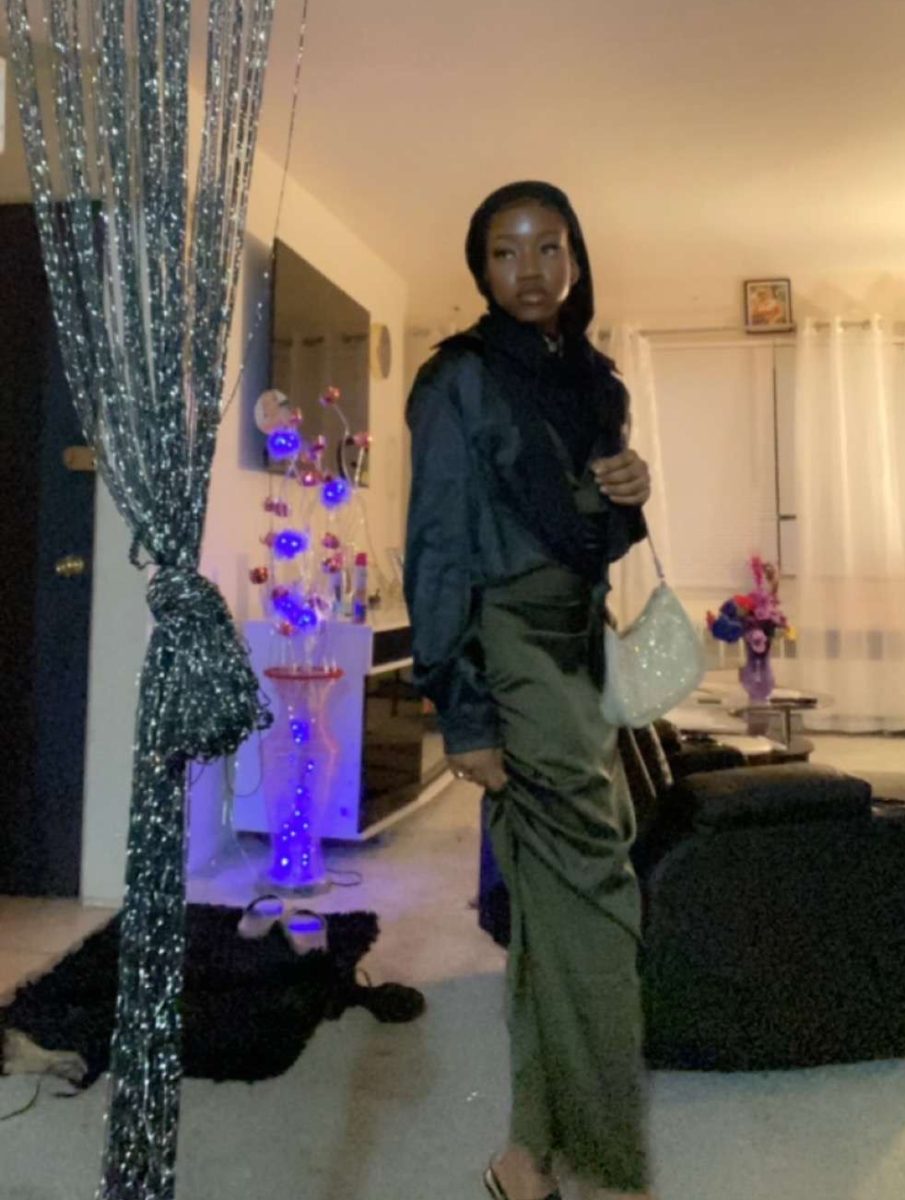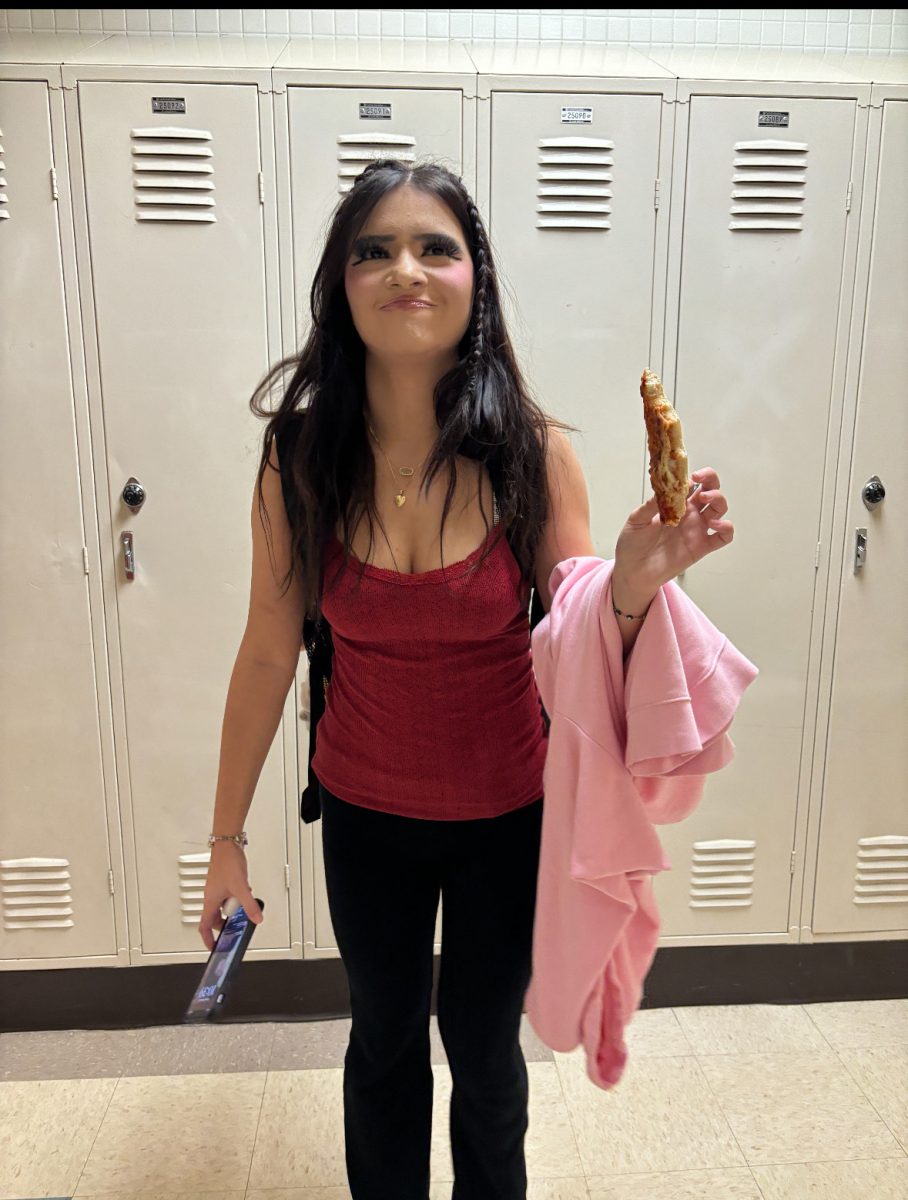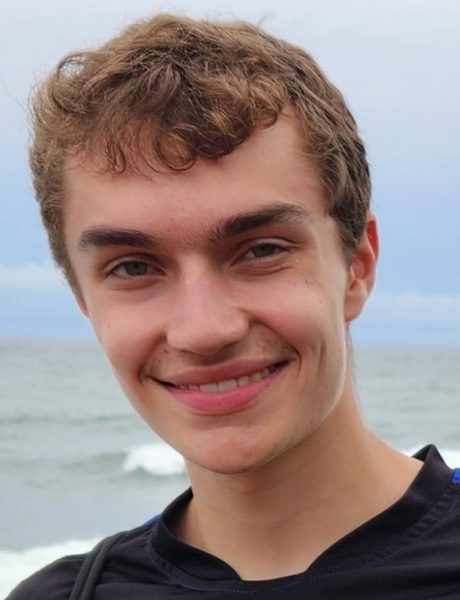What is your name and grade? My name is Neo Balogo and I’m a junior.
How did growing up in the Philippines during your early childhood years shape your perspective on life?
I guess it helped me become very empathetic because when people say things that other people are going through, let’s say we have a presentation about third-world countries, I could easily relate to that because I’ve seen a lot of people on the streets scraping for food. I’ve seen it firsthand. There were children that were street children because you rarely see that here in the U.S. but there in the Philippines it’s even worse because there were lots of them. If you go out there in the city, it is very likely you will find one. The political environment there right now is kind of bad because if you know anything about Filipino politics, in the ‘60s [Ferdinand] Marcos was a dictator. The United States supported him because if you look at Vietnam, the U.S. supported both parties because they believed that not only would it stop communism, but it would also expand American interests. And so the U.S. didn’t really care about what would happen to the people, and that kind of messed up society when Marcos was in power in the ‘60s. Right now, the president [of the Philippines] is actually his descendant, his grandson. It’s crazy because prices have gone three times higher than regular. For example, in my country we sold mangos for 50 pesos and now we sell them for 150 [pesos]. If you convert 150 to American dollars, then that’s just three dollars. It’s not a big deal but in the Philippines we treat money differently than here. We treat 100 pesos as if it’s 1,000 dollars, even if it’s only worth 20 dollars here if you convert it. The situation [in the Philippines] is more down-to-earth and you get to see more raw things happening with your own eyes. To an extent, that led me to be more empathetic and more emotional about what others say. If they say that something bad is happening to them, I’m more inclined to listen to them. There’s ethos, pathos, and logos, and everyone is affected by pathos.
The situation [in the Philippines] is more down-to-earth and you get to see more raw things happening with your own eyes. To an extent, that led me to be more empathetic and more emotional about what others say. If they say that something bad is happening to them, I’m more inclined to listen to them. There’s ethos, pathos, and logos, and everyone is affected by pathos.”
— Neo Balogo
What was the biggest culture shock you experienced upon moving to the United States and how did you react the first time you saw it occur?
It’s kind of a shocking thing because before I moved to the U.S., the only way I had experienced American life was through movies, like “Home Alone”, “Disney”, and “Avengers”. I always saw these people in suits and nice clothing that upper middle class people would wear, like the stereotypical perfect American. But when I came here, I realized that people didn’t really care about what you looked like. I mean, you could be in Walmart with shorts and sandals, and people wouldn’t really care. But in the Philippines, we were shaped by American culture in that if you wear something, people are actually very particular about it. If you wore a specific brand of shoes, they would care. In the Philippines, we had dress codes. It didn’t matter if it was a public or private school, everyone had dress codes. You had to be careful about what you wore because people would rob you if you wore the wrong thing. If you’re a tourist in the Philippines then people could easily spot that but here they don’t really care. There’s no dress code here. I mean, political parties and politics play a huge role in that but in general, people just don’t really care that much about what you wear and what you do. Even the way you speak English, they don’t care. My dad once saw a group of Hispanic customers who walked into Menards and they didn’t really know how to speak English perfectly, and people were fine with that, they just helped them. But in the Philippines, they were very particular about the way you spoke English. American culture is very influential in the Philippines. All the signs are in English, paperwork is in English, the whole government and the republic is based on the U.S. Constitution, so it’s a very huge thing. We often say that Americans have the gold standard of living, so we need to act like them. Apparently, my dad told me that if you couldn’t speak English well, they would scold you for that and say, “Hey, be careful! If you’re in America and you don’t speak English correctly, they’re gonna scold you and look at you differently.” But I came here and people didn’t really care. So that’s my opinion on that.
We often say that Americans have the gold standard of living, so we need to act like them. Apparently, my dad told me that if you couldn’t speak English well, they would scold you for that and say, ‘Hey, be careful! If you’re in America and you don’t speak English correctly, they’re gonna scold you and look at you differently. But I came here and people didn’t really care”
— Neo Balogo
What memory or experience first inspired your passion for automobiles and aircraft?
My dad had a bunch of models, where you would open and build it out of the box and paint it. So he had bought some toy models, basically scale models of cars and airplanes that he would put on shelves. I always looked at them and thought “Wow, this is awesome”. My dad owned a really old car, a 1970s Mitsubishi Lancer, and that also fascinated me because I thought, “Oh, that’s a cool-looking car”. He had models that were detailed, so I could see the engine and the steering. I thought, “When I turn the wheels, how does the steering wheel turn?” So I looked at it and found the mechanism and realized all this is very interesting. The engine power, how it works, how it can power the wheels. For aircraft, my parents were architects back then, so they always went to business meetings in Manila. They would often bring me there, but obviously you can’t get there without riding an airplane. Because of that, we always flew from Iloilo, where I used to live, to Manila when my parents were going to conventions or meetings because there was an architectural firm there. I would always go there in these nice hotels and I would always be in these airplanes, so that always excited me. When I was landing in airports to and from, instead of doing homework, I would just watch very technical videos of airplanes. By the time I was in elementary school, I already had a pretty fundamental understanding of aviation but no one really seemed to appreciate that because they were focused on other things. I mean, [the Philippines] is a third world country, so they’re more focused on living and survival. I was pretty lucky that my parents were hardworking and had a pretty decent amount of money in the Philippines. That also shaped the way that made me love aviation and cars. We had a computer, so obviously we had access to Youtube and movies through that.
I would always go there [to Manila] in these nice hotels and I would always be in these airplanes, so that always excited me. When I was landing in airports to and from, instead of doing homework, I would just watch very technical videos of airplanes. By the time I was in elementary school, I already had a pretty fundamental understanding of aviation.”
— Neo Balogo
At the moment, what career do you hope to pursue after high school and why?
It’s still aviation, but I’ve also matured in the sense that if I don’t become a pilot, it’s not really a big deal because I could be a local pilot renting airplanes and having fun, so it’s still gonna be the same principle. I could still be an engineer and be happy because I’m more math oriented. I like math in general, critical thinking, and finding solutions to problems, so I think engineering would be a good pursuit. Ideally, it would be aerospace engineering because it pays a lot, I would be designing airplanes, and I would get to travel to a lot of places.
What has been the greatest obstacle you’ve faced in your lifetime and how did you work to overcome it?
The greatest obstacle I’ve ever faced was talking to people. In the Philippines, I was in a private school and I was exposed to what [socializing] was like, but I never fully interacted with it, I was just witnessing it. I guess you could say that I didn’t really grow up with good social skills. I was very insecure, I didn’t talk to people. When I did something wrong, I didn’t know how to say sorry so I just fled the scene whenever that happened, which made me into a very awkward person. But then my dad told me I have to talk to more people, I have to be more open. So here’s where I am now. I still consider myself an introvert, but I try to be realistic and talk to people. I know a lot of people from all grade levels because I talk to them. Even if I’m not gonna be seeing them again, only for a few minutes, I’ll still talk to them because a few minutes spent talking is better than not talking at all.
I still consider myself an introvert, but I try to be realistic and talk to people. I know a lot of people from all grade levels because I talk to them. Even if I’m not gonna be seeing them again, only for a few minutes, I’ll still talk to them because a few minutes spent talking is better than not talking at all.”
— Neo Balogo
What advice would you give to those who are also interested in learning more about the world of automobiles and/or aviation?
It’s never too late to start. I met this World War II pilot who became the oldest in the whole world to get a commercial pilot’s license and actually fly for airlines like United. He was the oldest person to receive a license that granted him to fly the really big airplanes, the jets, your typical commercial airliner, like United or Delta. He was 80 years old when he first got it, and now he’s 100. So he actually flew during World War II and met the pilot who dropped the atomic bomb on Nagasaki and Hiroshima. His name was Paul Tibbets and [the older pilot] said that he was a very nice, down-to-earth guy. [Dropping the atomic bomb] took a toll on him because he was indirectly responsible for the killing of hundreds of thousands of people. He was flying the very plane that killed lots of people. [The older pilot] was honestly surprised that [Tibbets] was so down-to-earth, especially considering all that had happened to him. And so my advice is that it’s never too late to start [training to become a pilot] because there’s no age limit to when you get your license to be a pilot. It doesn’t matter if you’re a pilot for an airline, or if you’re just flying locally in a small Cessna. What matters is that you reach your dream and that you enjoy it. I know this retired air traffic controller who had a pilot’s license way back when but just started flying a few years ago and now he flies almost every week. He’s got an airplane up in Kenosha that he flies every week and he spent a lot of money trying to fix it. Aviation is a whole lifelong interest, and same with cars. You’ll never get bored by it, and you’ll never miss anything.
…my advice is that it’s never too late to start [training to become a pilot] because there’s no age limit to when you get your license to be a pilot. It doesn’t matter if you’re a pilot for an airline, or if you’re just flying locally in a small Cessna. What matters is that you reach your dream and that you enjoy it.”
— Neo Balogo
What additional hobbies do you enjoy exploring in your free time outside of school? From your perspective, what makes these activities so intriguing?
Bowling. James [Prizant] introduced me to bowling and now I’m really interested in it. I started to study the more technical side of it because my perspective is that I like to go technical on a lot of things. It doesn’t matter if it’s not mechanical, like engineering or aviation. There’s also mechanical stuff that happens in sports too, like what happens to the speed of the ball if I roll it slower, what happens if I change the angle a little bit. What’s gonna happen to the ball if instead of it rolling 45 degrees, I turn it even more to 60 degrees? How is the ball gonna react to the backhand? How fast will it go, how slow will it go, how late is it going to hook into the pins? How oily is the pattern in the lane? Bowling alleys put oil on [their lanes] and in most competitions, they change the pattern of the oil and you don’t know what it is because it’s invisible. So you let the ball tell you what to do. There’s different types of balls too, so you let the ball be the messenger for you. However good you are, you can actually have key takeaways based on the performance of your ball. Good bowlers are bowlers who look at the rules of stuff. They’re very technical but they don’t let that consume them in the sense of, “Oh, just make the shot. Don’t overthink it”. A lot of that plays into the mental game too, so that’s also a focus that I have.
What is one little known fact or hidden talent that most other people would be surprised to learn about you?
Drawing circles, I guess. I saw this one guy on Youtube a few years ago who just drew circles for fun and used his wrist to draw a perfect circle. The criteria was that the circle had to be more than 12 inches long, so I adjusted the length of the marker. The diameter of the circle was then 13 inches, so about an inch longer [than the minimum criteria]. It barely passed but I got very good scores. On Friday [Mar. 15], I actually got the highest score out of anyone. Everyone’s looking at me now, even with bowling. It’s now common for people to bowl with two hands but back then, it wasn’t always common. There were two people, Jason Belmonte and Osku Palermaa, who were the first bowlers to use the two-handed style in the National League. Because they got great scores and could spin the ball really fast with just one hand, lots of people started using that technique and had lots of success with it too. I have a feeling that what I’m doing [with circle drawing] is gonna be like the two-handed style in bowling. People will start to get a hold of me using the wrist action, and then they’ll start doing it and say, “Oh, this is actually not that bad.” I’m more precise with what I’m doing because it’s such a small circle for what it is. I’m actually getting more perfect circles each time so I think that people will start doing what I’m doing. Unless they make a rule that [the circle] has to be bigger than 20 inches, then people would go back to the old technique again.
[Mark Roth] was one of the best bowlers this world has seen, so I would ask him for advice. He’s dead now but he revolutionized bowling because he was a force in the early ‘80s who won a lot of competitions. He was a really great bowler and he was also Jewish, so he challenged social norms in that sense. I think he would be a really great inspiration.”
— Neo Balogo
If you could have dinner with any well-known individual from history, whether living or dead, who would it be and why?
I have a lot of people who I look up to. Honestly, I don’t really ponder that much about people per se. There are a lot of good people I’ve learned about through history, but there were definitely a lot of bad ones too. You would probably expect me to say the founder of aviation or something, but I don’t really think so. There’s been a lot of influential pilots but no one’s really paying attention to pilots. Everyone knows actors so people would often say, “Oh, I would have dinner with this actor or that actor”. Bowling isn’t really well-known either, but I would probably talk to Mark Roth. He was one of the best bowlers this world has seen, so I would ask him for advice. He’s dead now but he revolutionized bowling because he was a force in the early ‘80s who won a lot of competitions. He was a really great bowler and he was also Jewish, so he challenged social norms in that sense. I think he would be a really great inspiration. Now I’m not saying he’s an outlier. I have a lot of other great people I’m interested in that I would like to have dinner with but if I had to choose one for the sake of the question, I would choose Mark Roth.


